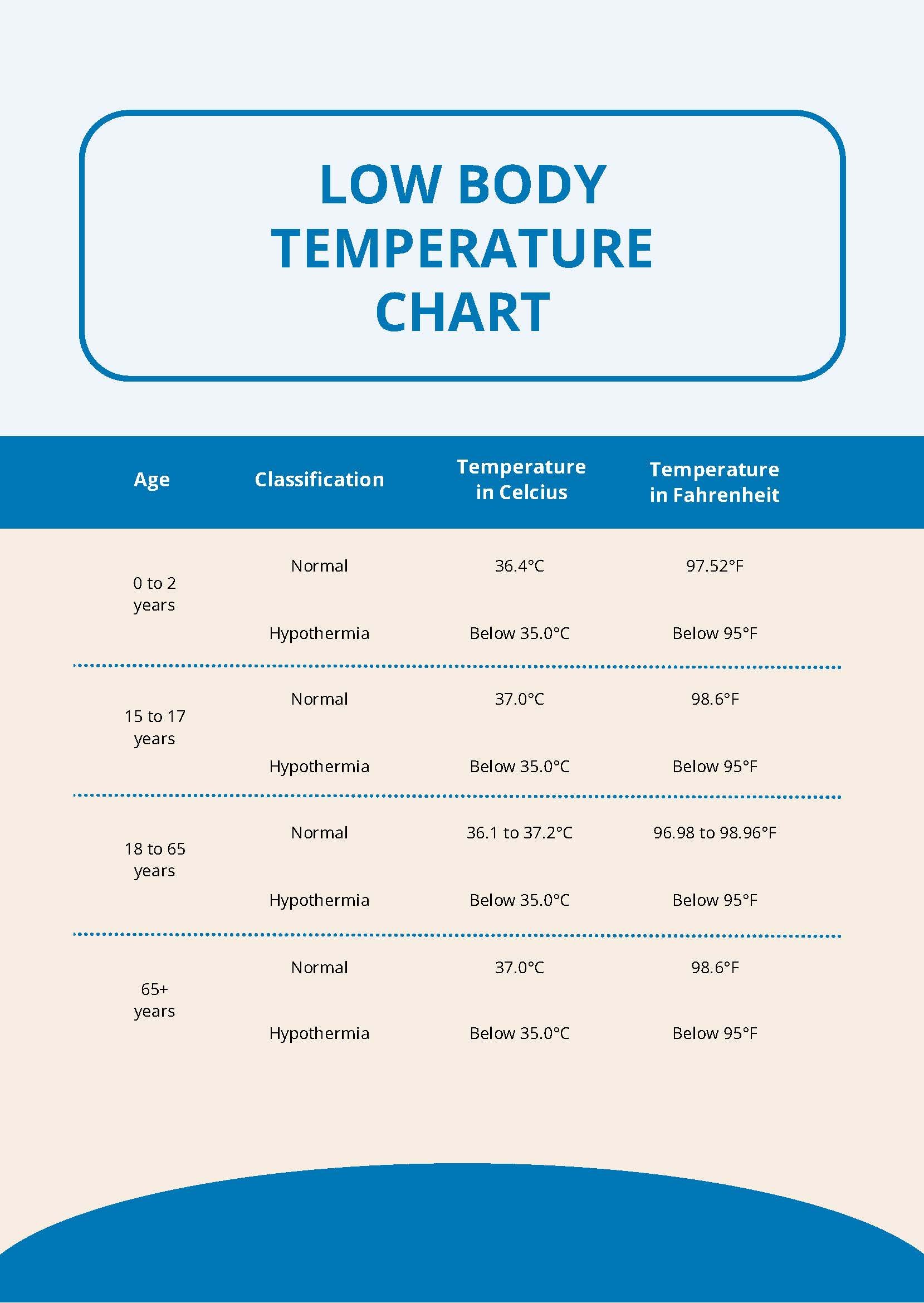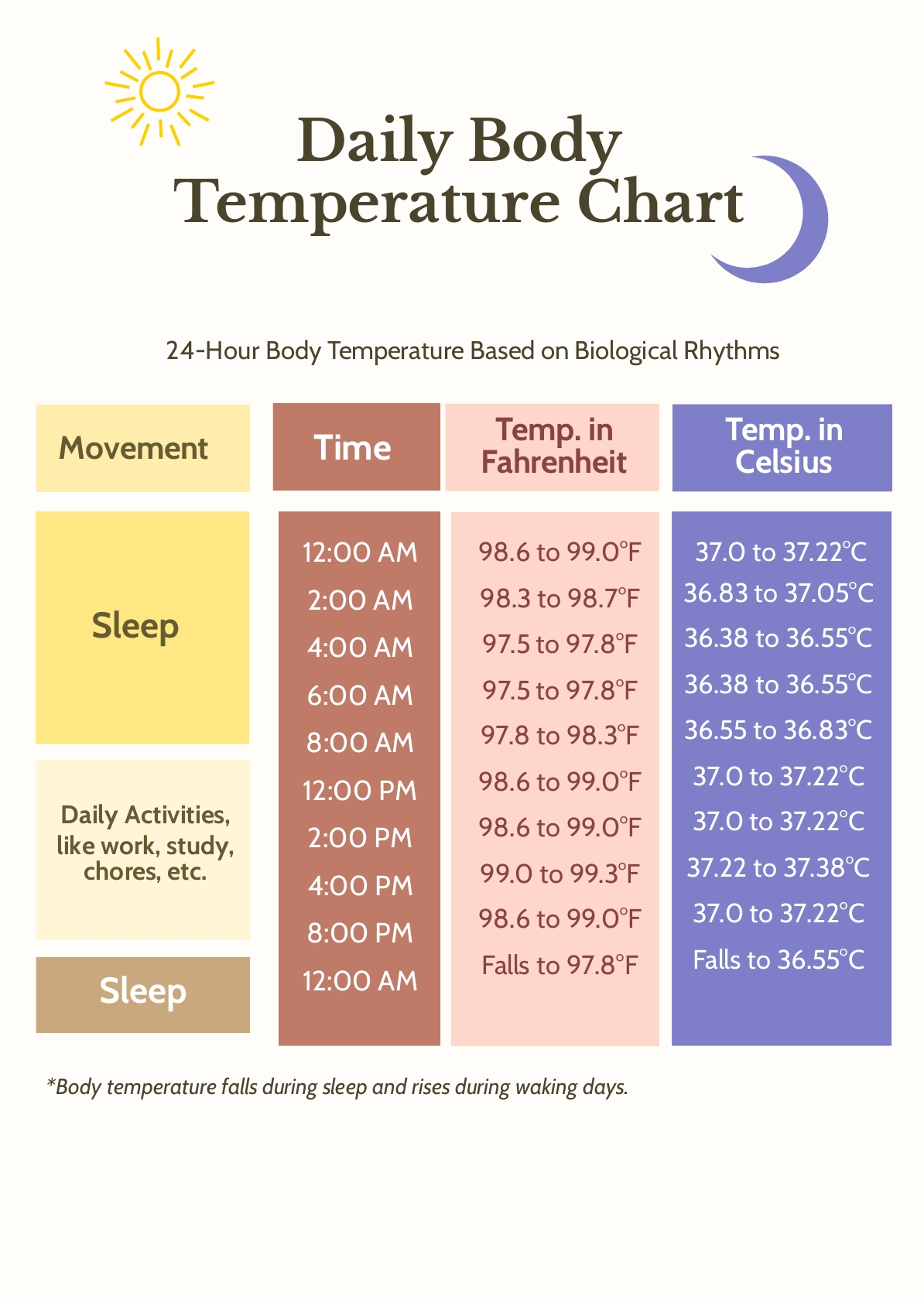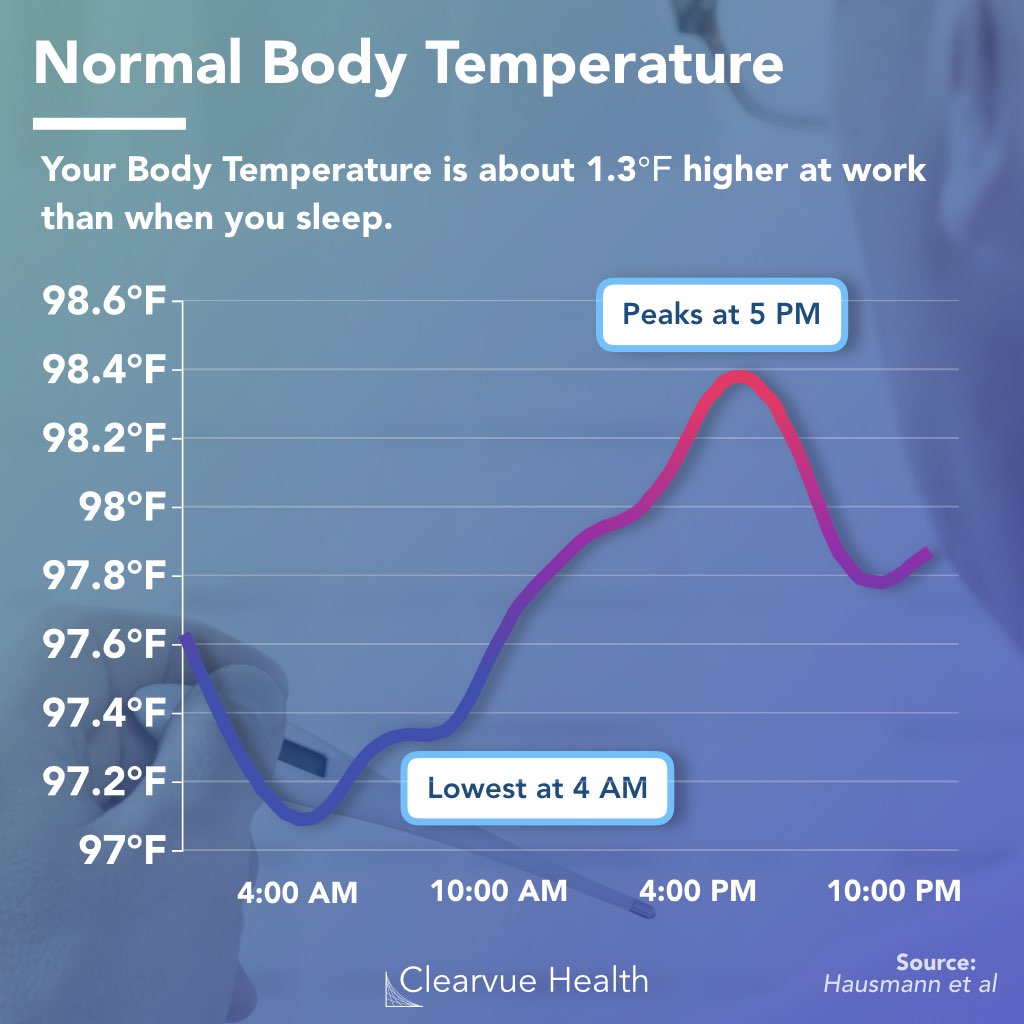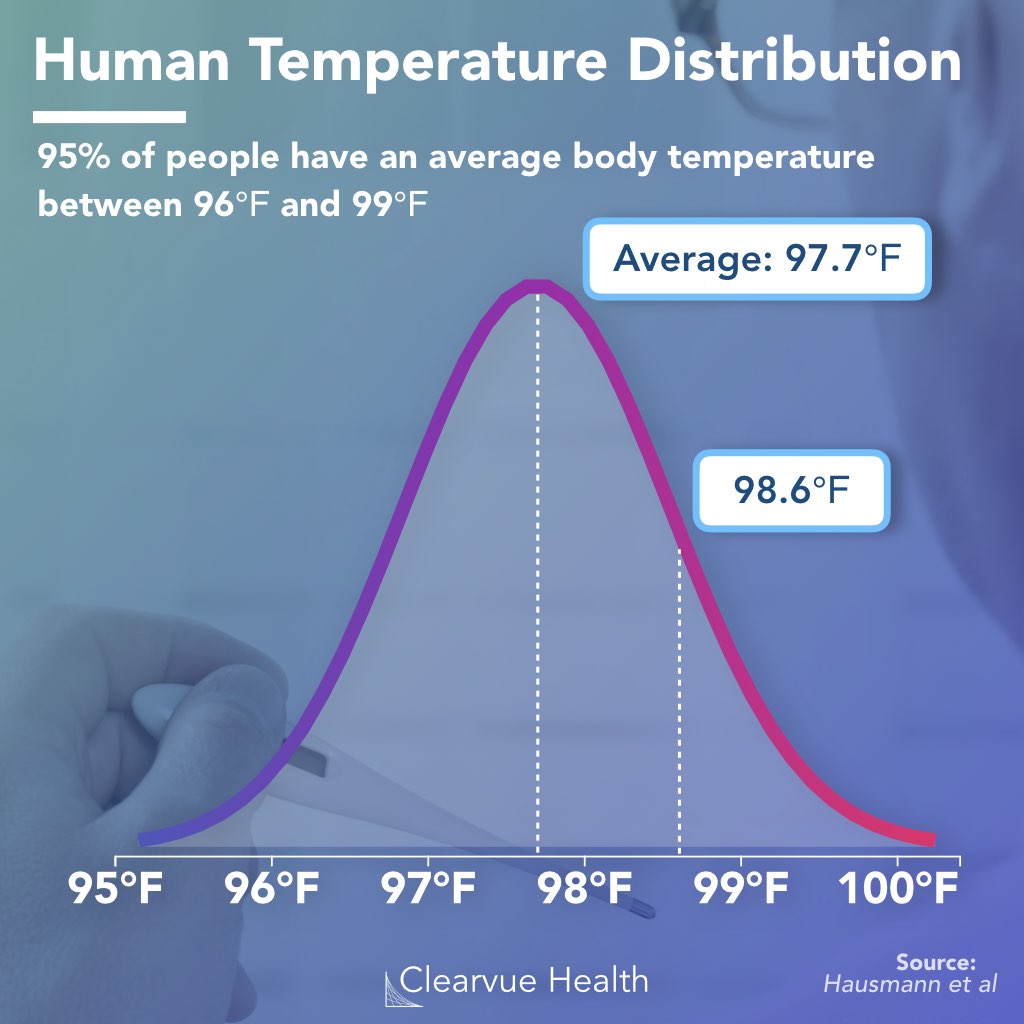Consider what's typical during baby's first year. Comprehensive guide to normal, fever, and low body temperature readings, with charts and expert tips for accurate measurement and health monitoring. Body mass index (bmi) uses weight and height to estimate body fat
Free Average Body Temperature Chart Download In PDF, 46% OFF
A high bmi and large waist size may signal an increased risk of heart disease.
Digestion time varies for each individual
It also depends on what kind of food and how much food you've eaten When you eat, digestive fluids and movement in the stomach break. A normal resting heart rate for adults ranges from 60 to 100 beats per minute A heart rate above or below that may signal a problem.
For your body to function properly, you must replenish its water supply by consuming beverages and foods that contain water So how much fluid does the average,. Keeping track of your menstrual cycles can help you understand what's typical for you You also can record your ovulation and find important changes — such as a missed period.

On average, people with alzheimer's disease live between three and 11 years after diagnosis
But some live 20 years or more How far the disease has advanced when diagnosed. Is caffeine causing you problems Find out how much is too much and if you need to cut down.
The average length varies from hours to days It's often shorter for people who have had a baby before For many people, early labor isn't particularly. Normal human body temperature chart

Understanding your body’s thermostat did you know your body temperature fluctuates more in a single day than the weather in many cities
What’s the normal body temperature for adults Learn all about your typical body temperature, what causes a high temperature and how to maintain it, here. What is our actual body temperature Body temperature norms normal body temperature varies by person, age, activity, and time of day
The average normal body temperature is generally accepted as 98.6°f (37°c). Learn about what high & low temperatures mean, taking temperature & when to be concerned. Body temperature, fever, hypothermia, normothermia human body temperature is well established as one of the key vital signs It is measured at regular intervals in the medical setting.

And average body temperature dropped even during periods of time when methods of measurement did not change
Why body temperature — and changes over time — matter body temperature is vital to health The average human body temperature is 98.6 degrees f Healthy, normal body temperatures range from 96 to 99.9 and vary across the lifespan Several factors can affect body temperature, including age, sex, and where on.
Body temperature elevated above normal, typically 38.1°c (100.5°f) or higher when measured orally It is important to note that individual body temperatures can vary, and factors. Learn what normal body temperature is in fahrenheit and celsius See the range of normal temperatures, depending on age.

Body temperature norms normal body temperature
The average normal body temperature is generally accepted as 98.6°f (37°c) The average body temperature is 98.6° f (37°c) But normal body temperature varies from person to person It also changes during the day, rising a bit after you eat or exercise
Recent research confirms the decline in average body temperature over many decades In one study, average temperature of 96 adults over two weeks ranged from 35.2°c. The average human body temperature is commonly cited as 98.6°f (37°c), but this figure can vary It is determined through extensive research and clinical studies that consider various factors.
Learn about the normal range of human body temperature, including measurements in fahrenheit and celsius and the significance of fever temperature.
A decrease in average body temperature could be linked to improvements in public health and a lower incidence of chronic infections compared to the 19th century. Normal body temperature is considered to be 37°c (98.6°f) However, a wide variation is seen Among normal individuals, mean daily temperature can differ by 0.5°c (0.9°f), and daily.
A new study finds that the average human body temperature is no longer 98.6°f, highlighting a steady decline over two centuries.